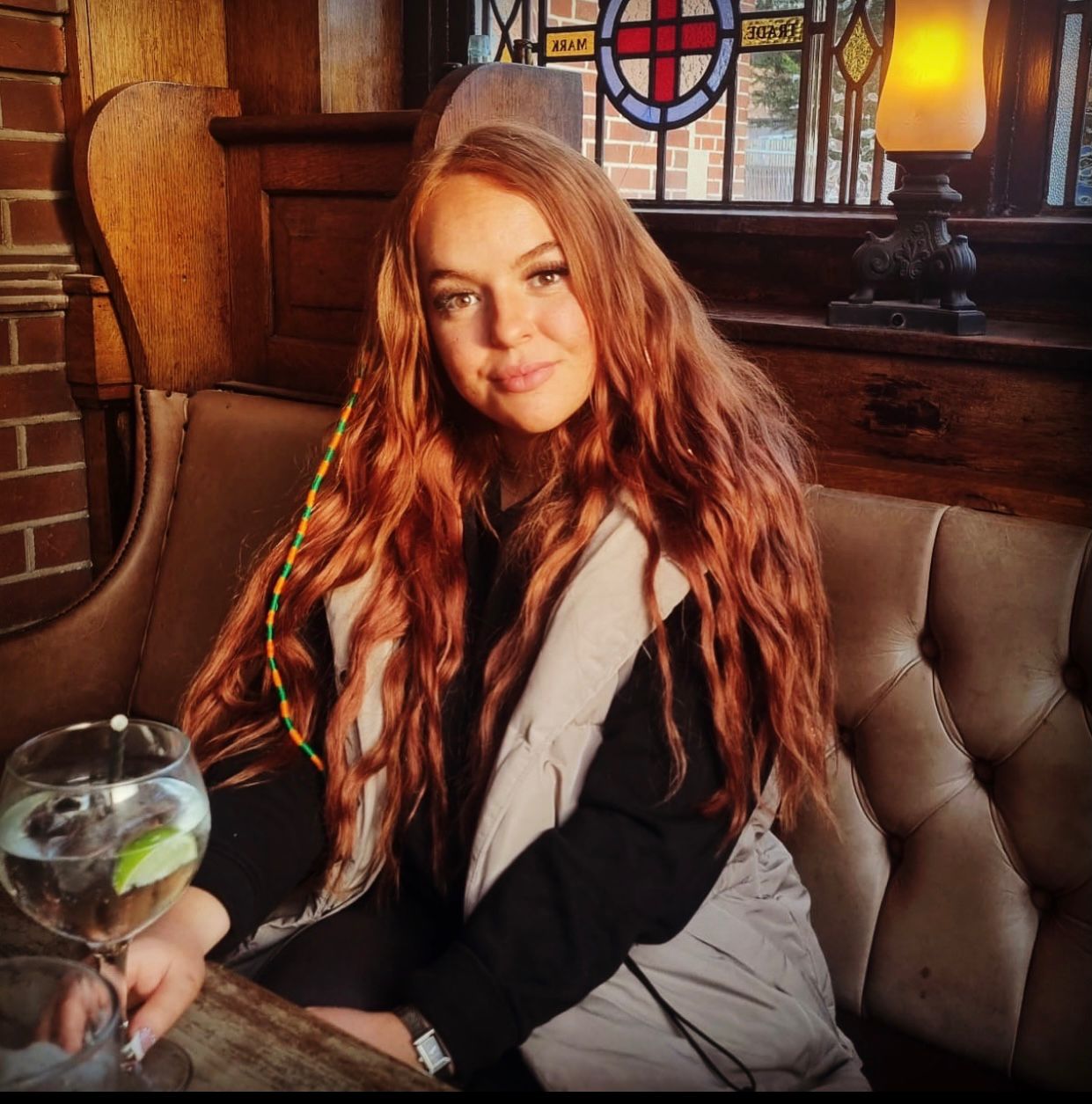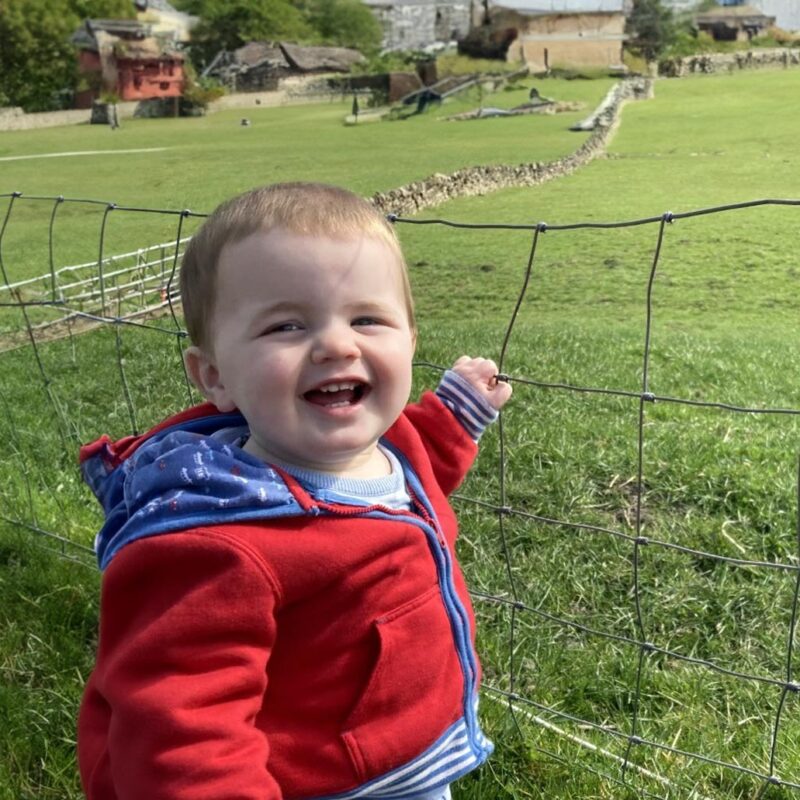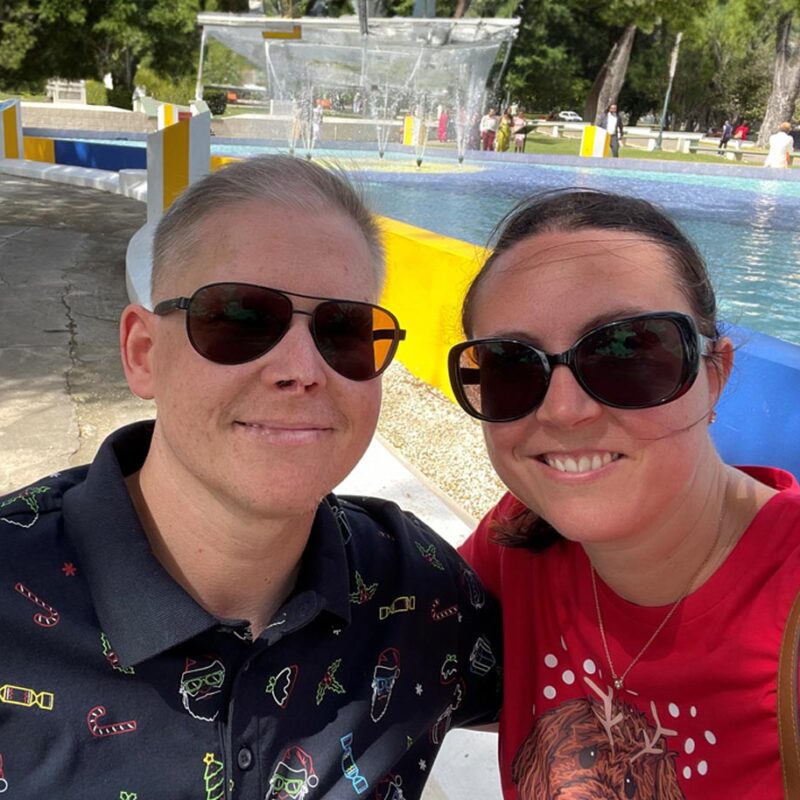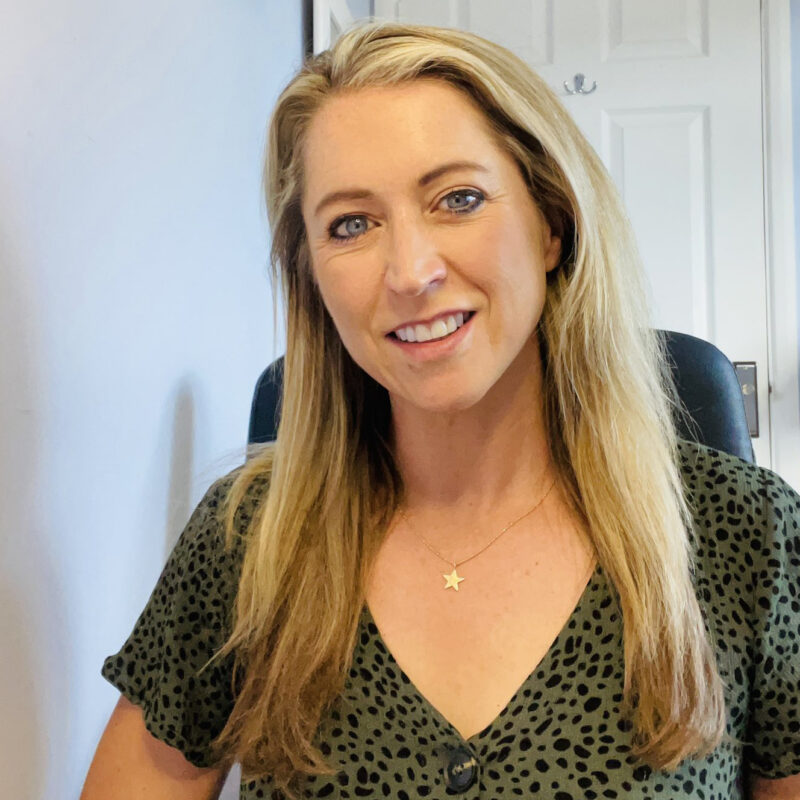24-year-old Molly Farrelly’s world was turned upside down after she developed necrotizing fasciitis from an infected eczema wound.
Having recently regained her independence after recovering from extensive surgeries, she is sharing her story to make others aware that sepsis can strike at any time…
Molly was at her partner’s house one night in September 2022, aged 23, when she started feeling extremely cold and nauseous. She said: “I just put it down to coming down with something, as everybody usually does.”
She took the next day off work, and was so cold that she ran a hot bath to keep herself warm, which she kept topping up. Then, she started projectile vomiting – at which point she assumed she either had Covid, or a stomach bug.
By the second day of being off sick, Molly started to experience a horrible pain in her arm, which felt really hot to touch. But at that point, she didn’t have a temperature. Yet the pain worsened, to the point where she couldn’t lift her arm. She said:
“I knew that something wasn’t right. I knew myself, no matter what anybody told me.”
Molly phoned 111, who directed her to an out of hours doctor who arranged for an appointment with a GP at her local surgery. He assessed the red patch on her arm, initially thinking it was cellulitis. He gave her a letter to take to the emergency department, and she made her way there in a long-sleeved gym top. She was given some paracetamol due to the pain, but not assessed as an urgent priority. Eventually, she went up to the front desk and asked the receptionist to cut her sleeve off. Upon opening the sleeve, her arm had started to turn black.
At that point, she was admitted to hospital and told that it was not cellulitis. She was hooked up to IVs while doctors attempted to figure out what was wrong with her, eventually taking her into surgery to collect cultures to see what was causing the reaction. At this point, Molly was in septic shock – she had acute liver failure and her organs had started shutting down.
They induced her into a coma because her body wasn’t responding to the antibiotics they were treating her with. Eventually, they got the results back from the lab and realised that she had necrotizing fasciitis. As an eczema sufferer, an open wound on Molly’s hand had been infected with the flesh-eating bug, which had then travelled up her arm. At one point, doctors discussed removing her arm as they didn’t believe they would be able to flush out the infection and stop the skin from dying.
Eventually, they brought her round from the induced coma on the fifth day, and she had a further six operations to clear the infection. Doctors did a double skin graft with pig skin; they took flesh from her thigh and completely reworked her arm. Molly’s recovery journey after her extensive surgeries involved intense physiotherapy, and she had to take Clindamycin for a long period afterwards to prevent reinfection.
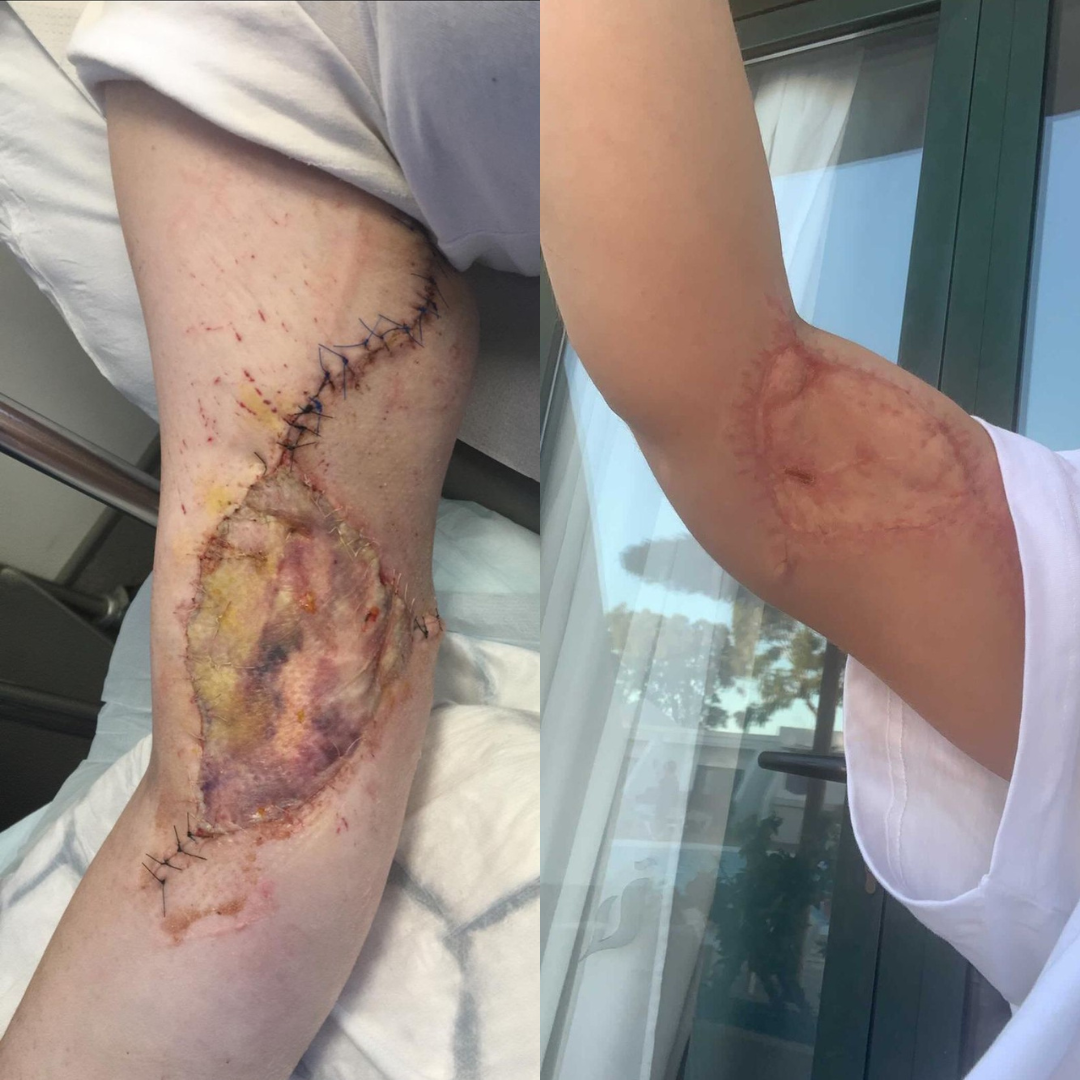
Molly benefitted from support provided by the trauma unit at the hospital after suffering with nightmares following her ordeal, as well as relying on her family and friends. But she encourages others not to suffer alone after sepsis: “Some people aren’t lucky enough to have such a supportive family. And so mental health wise, there are so many places that you can seek help for sepsis support, including charities like UKST.”
Molly encourages anyone who is recovering from a stay in intensive care to take up support where it is available. She said: “You can only judge how you’re feeling at that time. But my push would be to take advantage of all the advice and help you are offered, even if you just want to go home in that moment, because the NHS is a wonderful thing. You need to get that help because these are professional people that know what they’re doing and they deal with this day to day. The mind is an amazing thing, but it’s also the scariest place to be at times, especially where you’re in an environment like ICU.”
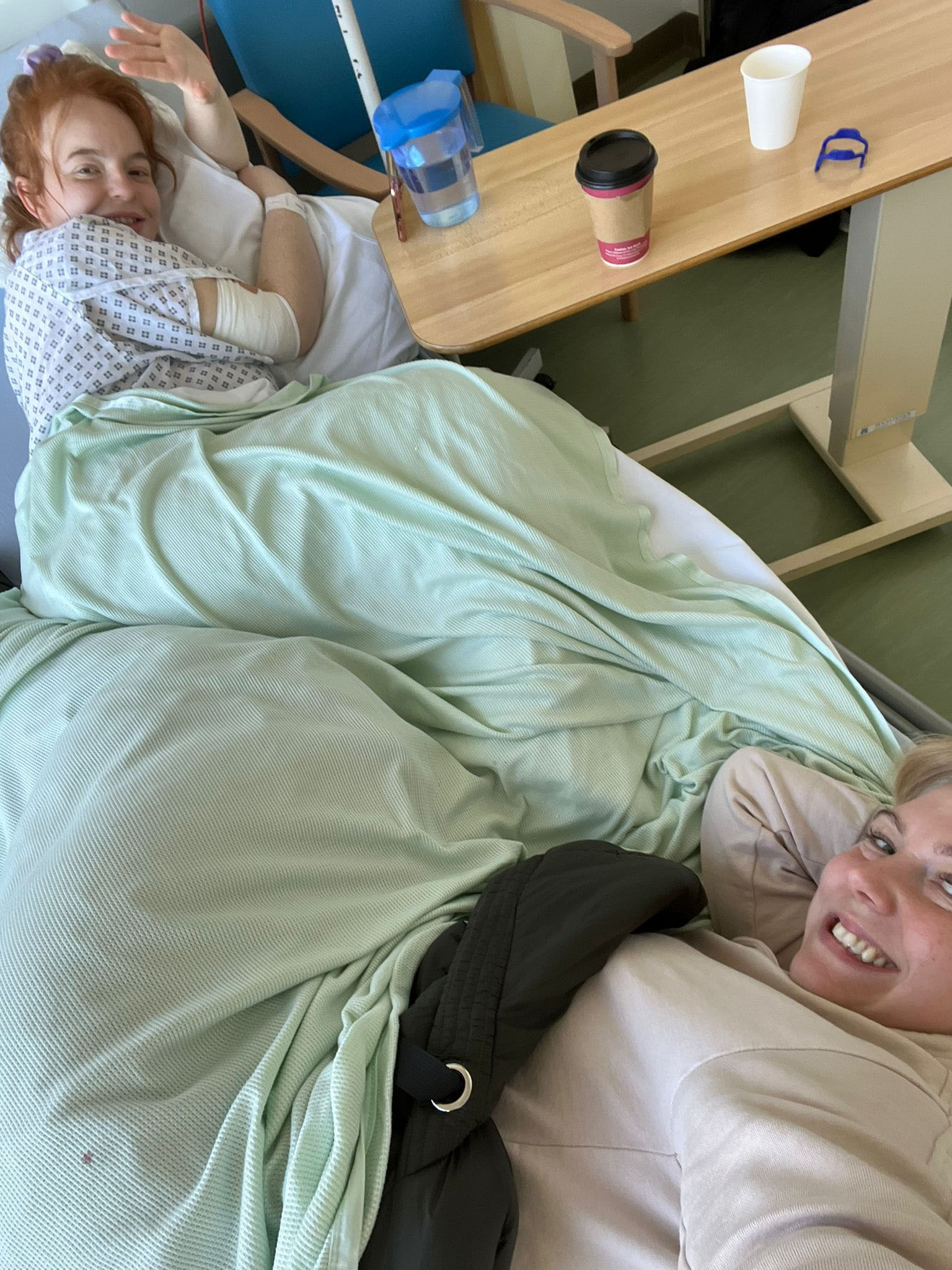
Molly was forced to move back in with her family after leaving hospital, and her work was also affected, as she was unable to drive initially. Eventually, she found a new role though and is grateful that her new boss has been supportive of what she’s been through. She has also recently moved back out to her own place, regaining her independence. Molly said: “I’m slowly recovering. But the main thing that I want to do is just spread awareness because the amount of people that I speak to that say ‘What’s sepsis?’, is mind blowing.”
One of the things that Molly has had to comes to terms with is being left with visible scarring on her arm and leg.
“I’ve put on three stone, I’ve got a scar on my arm, a scar on my leg. I’ve got half the hair I used to have. I’m a completely different person, but 110% for the better because I don’t care about materialistic things anymore.”
“People don’t know what’s happened to me, so day to day now, people look at me differently,” she said. “When I wear something short I’ll have to have that reassurance – does it look OK? It’s something that I’m working through. Obviously, it’s a reminder of what I’ve been through and a reminder of how strong I really am, but that’s taken me a really long time to grasp. But I just think that there’s so many people worse off and you have to really count your blessings. These amazing doctors saved my life. If that means that I have to have a scar, when I get to spend the next couple years with my family and one day have a family of my own and a career, that’s a small price to pay.”
If there was one message Molly could give to others, she would like to say:
“Sepsis will kill you. Sepsis isn’t a cold. It isn’t a flu. It can happen to anybody at any time.”
“You could be a millionaire. You don’t have to be in any kind of strange situation. It will hit you and it will affect you.”
Particularly addressing people her age who might not think they are susceptible to sepsis, Molly said: “I would say to young people, wash your hands, clean your cuts.” And, don’t be afraid to trust your gut if your body is telling you something isn’t right, Molly added: “I just I thought I was under the weather, I just had a cold. And if I hadn’t gone to the doctors and trusted my gut, I wouldn’t be here.”
Don’t rely on your gut alone – know the symptoms of sepsis.
